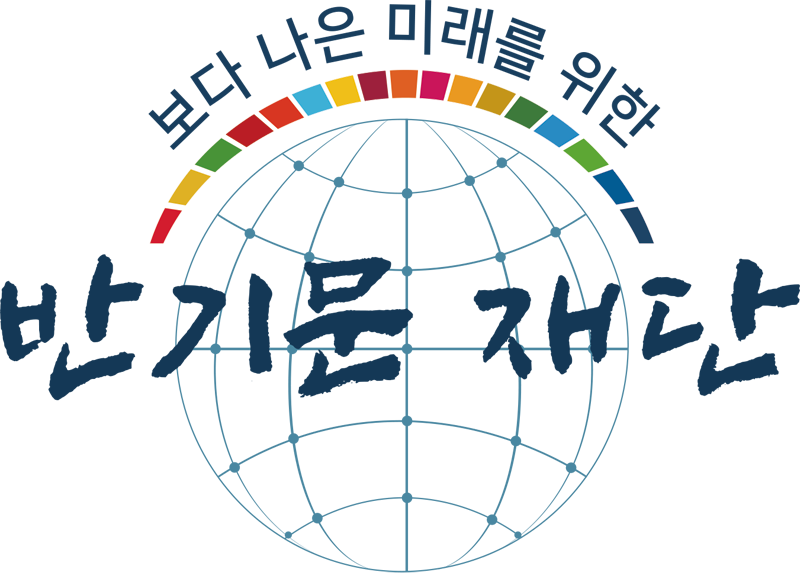[2024-10-29] DRIVING CLIMATE-RESILIENT INFRASTRUCTURE AND INCLUSIVE INDUSTRIALIZATION: HIGHLIGHTS FROM THE THIRD ANNUAL TRANS-PACIFIC SUSTAINABILITY DIALOGUE
Held at Stanford and hosted by the Shorenstein Asia-Pacific Research Center, the third annual Dialogue convened global leaders, academics, industry experts, and emerging experts to share best practices for advancing Sustainable Development Goal 9 in support of economic growth and human well-being.

Participants gather on the steps of Encina Hall for the 2024 Trans-Pacific Sustainability Dialogue. [Photo Credit: Rod Searcey]
As societies grapple with the profound challenges of sustainable development, they must address the imperative to build resilient infrastructure, promote inclusive industrialization, and foster innovation — the vision encapsulated in Sustainable Development Goal 9 of the 17 Sustainable Development Goals (SDGs) comprising the United Nations-adopted 2030 Agenda for Sustainable Development. To expedite the implementation of SDG 9, the third annual Trans-Pacific Sustainability Dialogue (TPSD) convened at Stanford on October 10-11, 2024.
Co-hosted by the Shorenstein Asia-Pacific Research Center (APARC) and the Ban Ki-moon Foundation for a Better Future, the Dialogue gathered social science researchers and scientists from Stanford and across the Asia-Pacific region, alongside policymakers, private and public sector experts, and emerging leaders to examine best practices that have proven successful in achieving SDG 9-related targets and identify areas where interventions are urgently needed to minimize disparities between high/middle- and low-income economies.
Sign up for APARC newsletters to receive our event invitations and scholars’ updates >
APARC and the Ban Ki-moon Foundation launched the TPSD initiative in 2022 to establish a forum for meaningful cross-sector, transnational collaborations and research partnerships to fast-track the SDGs. This year’s TPSD capitalized on the success of the inaugural Dialogue and its following convenings that focused on advancing energy security (SDG 7), gender equality and women’s empowerment (SDG 5), and peace, justice, and strong institutions (SDG 16). This third annual TPSD was made possible thanks to the support of multiple co-organizers: the Asian Development Bank (ADB), Ewha Womans University, Fijian Competition and Consumer Commission, Korea Environment Institute (KEI), Ministry of Foreign Affairs of the Republic of Korea (MOFA), and the Natural Capital Project (NatCap) of Stanford University.
Bridging Policy, Industry, and Academia
APARC Director Gi-Wook Shin opened the Dialogue by emphasizing its aspiration to do more than diagnose challenges and needs: “The TPSD is about identifying solutions and possibilities at the nexus of science, policy, and society,” he said. “There is no better place for this conversation than Stanford, with its long track record as a hub of innovation where disciplines converge and revolutionary ideas take shape.” The first day consisted of plenaries featuring keynotes and panel discussions, starting with a session on the role of world leaders in higher education and sustainable innovation.
Ban Ki-moon, the 8th Secretary-General of the United Nations, stressed, “We must proactively explore new ways of learning and creating a culture for innovation as we simultaneously realize the green transition for all people and our planet. We must be prepared for a disruption of traditional practices, which are so rigid that they could be the barriers to introducing new systems and solutions.” Zandanshatar Gombojav, Chairman of the 7th and 8th Parliament of Mongolia, spoke about the significance of educational reforms in fostering innovation. Eun Mee Kim, the President of Ewha Womans University, underscored the role of women in driving sustainable initiatives. Stanford’s own Francis Fukuyama, the Olivier Nomellini Senior Fellow at the Freeman Spogli Institute for International Studies and the Director of the Ford Dorsey Master’s in International Policy), discussed the challenges of climate policy implementation and ways to advance public policy education. To solve public policy problems like the implementation of the SDGs at the national scale, he said, we must build a powerful coalition of public policy schools dedicated to advocating for this shared understanding. This coalition should be strong enough to drive meaningful action and generate the political will necessary to create change — just as effective coalitions have traditionally operated in democratic societies through fundamental political alliance building.





The second plenary session focused on climate change diplomacy and was sponsored by the Ministry of Foreign Affairs of the Republic of Korea. Chan-Woo Kim, the former Ambassador for Climate Change of the Republic of Korea, discussed the necessity of international collaboration on climate initiatives. Erdenebold Sukhbaatar from the Mongolian Parliament addressed the intersection of climate change and national policy, while Dave H. Kim from the Global Green Growth Institute provided insights into innovative approaches to climate diplomacy. The next plenary session focused on resilient Infrastructure and sustainable industrialization and was organized by the Fijian Competition and Consumer Commission. Panelists included Joel Abraham, CEO of the Fijian Competition and Consumer Commission; Lorraine H. Akiba, President and CEO of LHA Ventures; and Diana Bowman, a Professor from Arizona State University. Together, they explored the challenges and opportunities in enhancing infrastructure in the Indo-Pacific, focusing on sustainable practices that promote economic growth and resilience.
Organized by the Asian Development Bank (ADB), the fourth plenary session investigated energy infrastructure financing as the discussion centered on increasing access to financial services for small-scale industries in developing countries, emphasizing the need for innovative financing solutions to support energy infrastructure. The panel included Rie Hiraoka, a Visiting Scholar at Shorenstein APARC; Sulakshana Jayawardena, former Secretary of the Ministry of Power and Energy in Sri Lanka; Kee-Yung Nam, Principal Energy Economist at ADB; and R. Duncan McIntosh, Senior Regional Maritime Specialist at ADB.
Generating Momentum Through Collaboration
On the second day of the conference, expert panels and a series of emerging leaders workshops facilitated opportunities for scholars, practitioners, and professionals to exchange ideas and share expertise. Discussions centered around emerging green technologies, and the economic and political innovations needed to facilitate sustainable industrialization.
Kim Sook, the Executive Director of the Ban Ki-moon Foundation for a Better Future and former Ambassador of the Republic of Korea to the United Nations, set a collaborative tone for the day’s sessions focused on actionable insights in his opening remarks. According to Ambassador Kim, “SDG 9 represents a fundamental pillar of the global development framework, it will promote economic growth, social progress, and environmental sustainability, but it is not a standalone goal, it touches almost every aspect of society and the economy and is ultimately linked to the success of the entire 2030 agenda for sustainable development.”
The first expert panel examined ways of leveraging the high-tech and finance ecosystems to improve access to technology, particularly in developing countries. Panelists, including Jeep Kline, Managing Partner and Founder of Raisewell Ventures, David Suh, Managing Director of Samsung Ventures, and former Minister of Trade of Indonesia Gita Wirjawan identified paradoxes and barriers that impede electrification and further investment in sustainable infrastructure and industrial innovation.





The next expert panel centered on technological innovation and cooperation for resilient infrastructure, emphasizing the necessity of enhancing financial and technical support for infrastructure development in developing nations. Leif-Eric Easley, Jaehyun Jung, Thomas Kalinowski, and Yeomin Yoon from Ewha Womans University articulated the crucial role of technological cooperation in achieving resilient infrastructure. A third expert panel on ecopreneurship highlighted the essential need for financial services and the integration of small-scale enterprises into broader sustainability initiatives. Panelists, including Jennifer Jeong-Ah Ryou, Banjo Yamauchi, and Edward Qiang Zeng, shared valuable insights on how to foster venture capital investments to establish sustainable practices.
The series of expert panels concluded with a policy roundtable titled “Integrating the Value of Environment Into Policy and Decision-Making for Sustainable Development,” organized by the Korea Environment Institute and the Natural Capital Project of Stanford University. The session featured insights from prominent experts, including Choong-Ki Kim, Osamu Saito, and Tong Wu, who emphasized the importance of enhancing scientific research and fostering innovation in developing countries. The discussion highlighted the need for a supportive policy environment that encourages industrial diversification and value addition, while also addressing the challenges developing nations face in harnessing their natural capital. Discussants Sung Jin Kang, Lisa Mandle, and Dara O’Rourke lent their perspectives on integrating environmental values into economic frameworks, underscoring the role of collaborative research and innovative solutions in achieving the SDGs.
A Dialogue Space for Emerging Leaders
In addition to expert panels, emerging leaders workshops spotlighted the work of early career professionals and rising leaders. Karen Eggleston moderated the first workshop, in which participants discussed issues related to the development of sustainable technology and equitable infrastructure, with Hye In Chung calling for an interdisciplinary approach to secure energy sovereignty, environmental equity, and sustainability for AI. Tomo Kumahira similarly highlighted the need for nature-based solutions and mitigation efforts based on comprehensive coordination to solve the water crisis, while Cynthia Zeng proposed better forecasting models and the development of applications and AI as tools to facilitate adaptation and resilience in a volatile climate regime. Sang Cheol Kim closed the session, bringing attention to the panelists’ common theme of AI for sustainability and sustainable AI, but emphasizing that this conundrum requires a need to consider multistakeholder interest, industry needs, and the democratization of resources. With the potential impact on equity, he underscored the necessity to think about risk and relevancy to address real-world problems.





In the second workshop, Cheryll Alipio moderated participants’ discussion of strengthening labor force participation and development for inclusive industries. Haley Gordon explored how international students’ capacity as financial, human, and social capital could minimize brain drain and instead circulate talent and labor among host and sending countries. Suhani Jalota, on the other hand, looked at how to increase female labor force participation in developing countries like India by introducing job interventions via smartphones, thus reducing barriers of access and mobility and creating flexible paid work. Yasmin Wirjawan likewise examined the high informal employment of Indonesian women and advocated for a digital ecosystem that would support improved digital access and adoption, financial inclusivity and literacy, and entrepreneurship training.
Closing the Dialogue, Kiyoteru Tsutsui, the Deputy Director of APARC and Director of the Japan Program, reminded the participants and attendees that “Progress comes from sustained effort and perseverance. It’s about iterating on what works, learning from setbacks, and, crucially, building bridges between people, sectors, and nations. And it’s about embracing the notion that our path to a sustainable future is still unfolding and ours to shape.” This, he said, has always been the spirit of the TPSD, which is an ongoing forum and a continuing conversation.
Source: Stanford University



